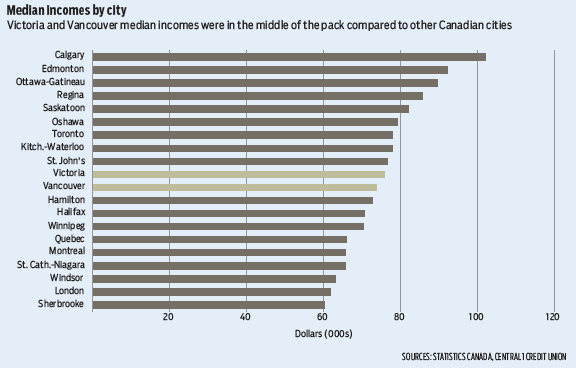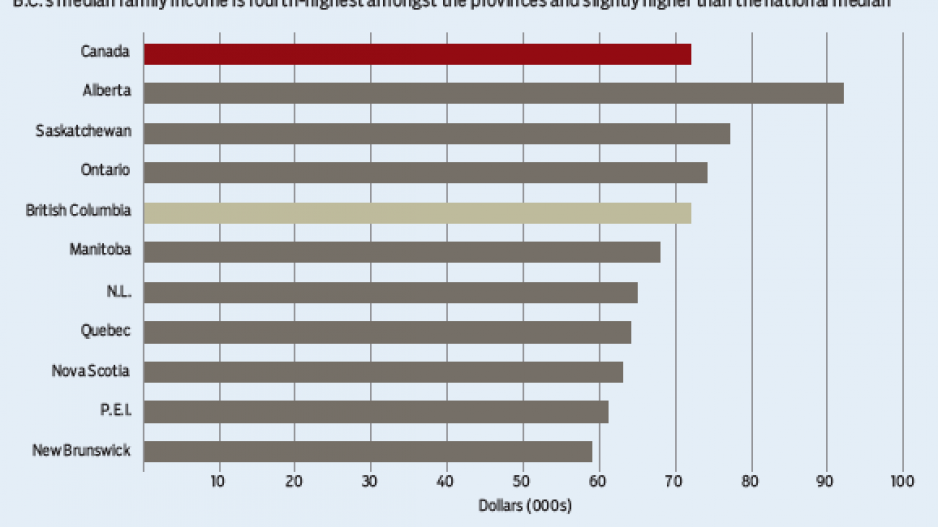Statistics Canada released information from its new Canadian Income Survey this week based on a 2012 reference year. As this is a new survey, the results cannot be compared to previous year estimates that used a different methodology, but the data can be compared across provinces and regions.
According to the survey, the after-tax median income of B.C. families (two persons or more), was slightly higher than the national median of $71,700 in 2012. At $72,200, B.C.’s median family income was fourth-highest among provinces. Alberta and Saskatchewan were firmly in front with income of $92,300 and $77,300, respectively. Meanwhile, for single individuals, B.C. income was $25,200, compared to $36,500 in Alberta at the high end, and the national median of $27,300. There is little wonder that B.C. has generally seen a net outflow of residents to our neighbouring provinces in recent years, while some others have commuted back and forth to take advantage of stronger earnings potential.
The B.C. numbers partly reflect the higher proportion of seniors, who naturally earn lower incomes relative to the general working-age population, compared to the province’s western neighbours. However, a similar pattern persists when differentiating between elderly and non-elderly family incomes. Non-elderly family income was $78,100 – again fourth-highest in the country.
Given differences in economic structure and community size even within provinces, it is worthwhile to examine how incomes in B.C.’s largest urban markets compare with similar-sized areas. Even here, B.C. metros were mid-pack performers. Victoria income was higher at $75,900 owing to a large public-service sector, while Vancouver median family income was $73,800. •

Bryan Yu is an economist at Central 1 Credit Union.




